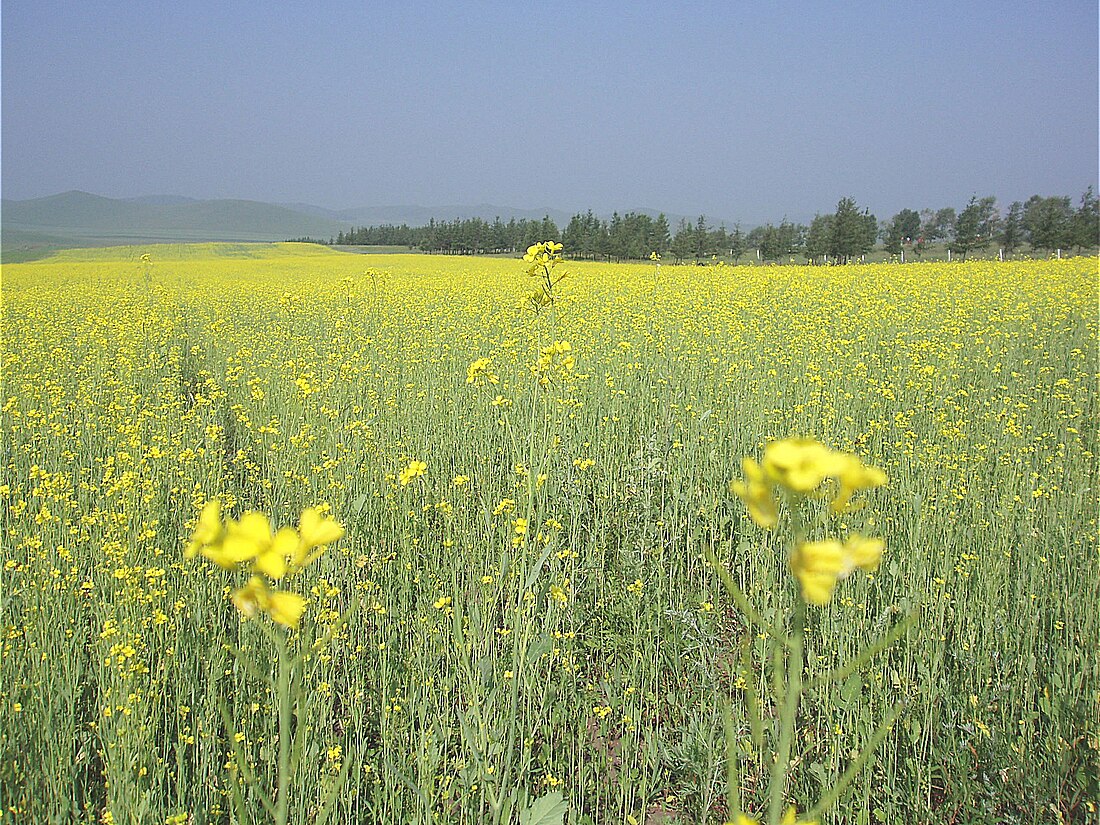Top Qs
Timeline
Chat
Perspective
Weichang Manchu and Mongol Autonomous County
Autonomous county in Hebei, China From Wikipedia, the free encyclopedia
Remove ads
Weichang Manchu and Mongol Autonomous County (Chinese: 围场满族蒙古族自治县) is a Manchu and Mongol autonomous county located in far northeastern Hebei province, China. It lies under the administration of Chengde City, and is the northernmost county of the province, bordering Inner Mongolia to the north. In terms of area, it is the largest county of Hebei, occupying an area of 9,058 km2 (3,497 sq mi), though, as it is located in mountainous terrain, it is rather sparsely populated, as of 2020[update], housing 423,676 people.
The area has been historically home to Manchu soldiers, and the local dialect of Mandarin is similar to that of Beijing, though there is some Northeastern influence.
Remove ads
History

The area of the county was originally grazing grounds for Mongol tribes. In the early Qing Dynasty, the Auqan, Kharchin and Onnigud Mongols gave these lands as a gift to the Kangxi Emperor, who then created the Mulan Hunting Grounds in Weichang.[2] Thereafter, it became hunting ground for the Qing royal family, Eight Banners aristocrats and Mongols.
Economy
Potato cultivation in Weichang Manchu and Mongolian Autonomous County covers an area of over 43,333 hectares, with the county producing 150 million potato minitubers annually.[3] The county is also home to the Hongsong Wind Farm wind power project.[4] Weichang Manchu and Mongol Autonomous County was one of the last counties to eradicate absolute poverty in China.[5]
Geography and climate
Summarize
Perspective
Weichang is located in the northernmost part of Hebei, with a latitude range of 41° 35' to 42° 40' N and longitude range of 116° 32' to 118° 14' E. It borders Inner Mongolia's Chifeng city to the east, Hexigten Banner to the north, as well as Duolun County to the northwest. Within Hebei province, it borders Fengning County and Longhua County to the southwest and south.
Weichang has a rather dry, monsoon-influenced humid continental climate (Köppen Dwb), with long, very cold and dry winters, and very warm, humid summers, and the elevation depresses temperatures. The 24-hour average in January is −12.3 °C (9.9 °F) and the same figure for July is 21.4 °C (70.5 °F), while the annual mean is 5.6 °C (42.1 °F). More than half of the annual precipitation occurs in July and August alone. The coldest temperature recorded in the province was −42.9 °C (−45 °F) on 12 January 1957 at Yudaokou Township (御道口乡).
Remove ads
Administrative divisions
Summarize
Perspective
There are 12 towns and 25 townships in the county.[9]
Remove ads
References
Wikiwand - on
Seamless Wikipedia browsing. On steroids.
Remove ads




